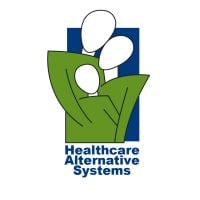Chicago Treatment and Counseling Centers
Drug Rehab Center in Chicago Ridge, Illinois
- Substance Abuse
- Mental Health
Chicago Treatment and Counseling Centers is an accredited treatment center in Chicago Ridge that specializes in dual diagnosis, providing effective treatments and aftercare support services for individuals with substance abuse and mental health issues.
About Chicago Treatment and Counseling Centers in Illinois
Chicago Treatment and Counseling Centers is a professional and accredited treatment center located in Chicago Ridge, IL. Their primary focus is dual diagnosis, treating both substance abuse and mental health issues. This multidisciplinary team of therapists and counselors offers a variety of effective treatments, including cognitive behavioral therapy, trauma therapy, individual therapy, and motivational interviewing.
In addition to providing treatment, Chicago Treatment and Counseling Centers also offers aftercare support services to ensure the patient’s success. They are accredited by SAMHSA, so patients know they are receiving the highest-level care from qualified professionals. The center is a safe, welcoming environment where patients can begin to change and heal, setting them on the path to leading a healthier, happier life.
Genders
Ages
Modality
Additional
Accreditations
SAMHSA
Conditions and Issues Treated
Substance abuse creates problems that affect people in Chicago Ridge, IL on many levels. First, substance abuse affects the individual who is abusing drugs or alcohol. This can result in health problems, including heart damage and overdose. Substance abuse also affects the user’s family, friends, co-workers, classmates, or peers. These people feel frustrated because they do not know how to help their loved ones struggling with addiction. At the same time, the addict cannot control his behavior. Lastly, friends and family members of addicts are affected financially by substance abuse.
The good news is that effective treatments can help prevent substance abuse or treat its effects on the user. These treatments, which include behavioral therapy and counseling sessions, target the underlying causes of substance abuse, helping users achieve sobriety so they can regain control over their lives. They also teach users to cope with stress in ways other than using drugs or alcohol.
Levels of Care Offered
This center offers a variety of custom treatment tailored to individual recovery. Currently available are Aftercare Support, Outpatient, with additional therapies available as listed below.
Outpatient programs at Chicago Treatment and Counseling Centers, the Chicago Ridge resident can live with their family while continuing with their job or studies. Treatment includes educating the patient on drug abuse, medications, and counseling sessions at the individual or group level. Outpatient treatment plans cover diagnosis, detoxification, management, and counseling. They are a popular option for those who have graduated from inpatient facilities.
Without aftercare support, addicts can easily relapse back into addiction. It is crucial to integrate the addict back into society. Aftercare support should take place after outpatient treatment has ended.
There are a few different types of aftercare support that patients can seek after completing an inpatient treatment program:
- 12 Step Self-help groups (AA, NA)
- Therapeutic communities,
- Long-term, structured sober living arrangements
- Halfway houses (residential treatment centers)
Many different support groups exist for addicts to seek help after treatment. Some are more effective than others, depending on the person’s addiction, background, and other factors.
Therapies & Programs
Individual therapy is a form of counseling where you meet with a trained professional one-on-one. Meeting with a therapist in this setting allows for a personal and trusting relationship to be built. This allows the patient to open up about sensitive or private issues they may not feel comfortable discussing in a group. Individual therapy helps identify the root causes of your addiction, which can help prevent relapse.
Many people struggling with drug addiction have experienced some form of trauma in their lives. It is crucial that these individuals seek out professional help; otherwise, their drug abuse and addiction will likely continue.
Therapists and counselors at drug treatment centers employ several treatment programs to help people struggling with drug addiction, including trauma therapy. Trauma therapy helps people dealing with addiction by allowing them to confront the traumas of their past and move past them.
It is important to note that trauma therapy should not be confused with PTSD (post-traumatic stress disorder). Rather, it is used to treat the effects of trauma, which are often at the root of addiction.
Cognitive Behavioral Therapy (CBT) focuses on the underlying thoughts and behaviors that caused the problem of addiction in the first place and may cause a relapse. Negative feelings are common in drug abuse disorders, but they can lead to co-occurring disorders if not recognized. CBT involves strategies that help to change the behavior pattern by restructuring negative thoughts into positive ones. It helps to remove these feelings, and it provides long-term benefits. Also, CBT promotes self-awareness and self-control. It can be administered as a monotherapy or as part of combination therapy.
CBT can improve the patient’s mood, reduce drug cravings and boost success rates on treatment plans. Regular practice can help individuals handle negative attitudes, thoughts, and feelings without turning to drugs or alcohol. The core belief of Cognitive Behavioral Therapy (CBT) is that one’s moods, behaviors, and actions are all connected. Individuals can improve their quality of life using CBT. It helps addicts understand the patterns of thought and feelings that cause them to use drugs or alcohol and develop a healthy response.
Additional Details
Specifics, location, and helpful extra information.
Chicago Ridge, Illinois 60609 Phone Number(773) 523-3400 Meta DetailsUpdated November 25, 2023
Staff Verified
Chicago Treatment and Counseling Centers Patient Reviews
There are no reviews yet. Be the first one to write one.
Chicago Ridge, Illinois Addiction Information
In 2016, more than 2,350 Illinoisans died from drug overdoses. More than 5,500 deaths annually occur in Illinois due to the abuse of alcohol and other drugs. 7.17% of Illinois residents reported using illicit drugs in the past month (2018). Substance abuse costs the state approximately $3.5 billion every year.
Treatment in Nearby Cities
- Lake Villa, IL (45.7 mi.)
- Skokie, IL (14.5 mi.)
- Olney, IL (215.5 mi.)
- Hinsdale, IL (14.1 mi.)
- Oak Forest, IL (16.2 mi.)
Centers near Chicago Treatment and Counseling Centers




The facility name, logo and brand are the property and registered trademarks of Chicago Treatment and Counseling Centers, and are being used for identification and informational purposes only. Use of these names, logos and brands shall not imply endorsement. RehabNow.org is not affiliated with or sponsored by Chicago Treatment and Counseling Centers.

